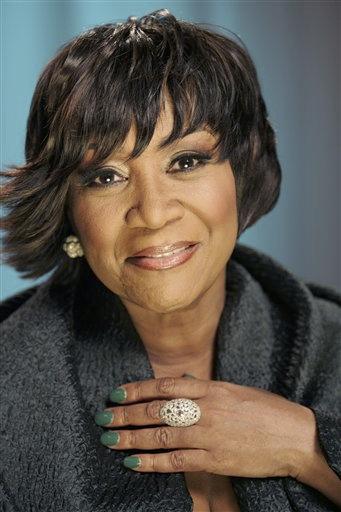Violence Continued to Grip the Holy City of Najaf a

Baghdad, Fallujah Hot; Najaf Not
Shiite militants and U.S. forces battled Saturday in the Baghdad's Sadr City slum and a mortar barrage slammed into a busy eastern neighborhood in a new round of violence in the capital that left five people dead and dozens wounded, officials said.
The violence contrasted with calm in holy city of Najaf, where residents cleaned up broken glass and rubble and returned to their wrecked offices and shops after three weeks of devastating clashes between Shiite fighters and U.S. troops.
Dozens of municipal workers were out for the first time in weeks, sweeping debris off roads lined with battle-scarred buildings, ripped by U.S. bombs.
Fighting stopped in the city after militants loyal to rebel Shiite cleric Muqtada al-Sadr filed out of the revered Imam Ali Shrine and turned over the keys to religious authorities, symbolizing their acceptance of a peace deal brokered by Iraq's top Shiite cleric, Grand Ayatollah Ali al-Sistani.
But gunbattles broke out between militants and U.S. forces in Sadr City, a Baghdad stronghold of al-Sadr's Mahdi Army militia.
Meanwhile, U.S. warplanes carried out airstrikes for the second straight day in the city of Fallujah, a center for Sunni Muslim insurgents who have been battling U.S. forces for more than 18 months.
U.S. forces also exchanged gunfire with insurgents on the city's eastern outskirts, and fighting was reported on the main highway that runs to neighboring Jordan. At least four homes were destroyed and people were seen being rushed to hospital.
In other developments:
U.S. soldiers in Humvees drove through the impoverished neighborhood of Sadr City with loudspeakers, demanding people stay home because coalition forces were "cleaning the area of armed men," according to an Associated Press reporter at the scene. There was sporadic gunfire.
Saad al-Amili, a Health Ministry official, said three people were killed and 25 were wounded in the skirmishes.
Also, militants fired assault rifles and rocket-propelled grenades at American troops patrolling the area, said U.S. Capt. Brian O'Malley of the 1st Brigade Combat Team, adding that U.S. forces suffered no casualties. Fighters fired eight mortar shells at U.S. troops in Sadr City but missed, hitting a small power station and knocking out electricity to a six-block area, he said.
As the battles raged, insurgents fired a round of mortars into a crowded eastern Baghdad neighborhood, killing two boys washing cars in a street near the former Iraqi National Olympic Committee building, said Interior Ministry spokesman Col. Adnan Abdul-Rahman. At least four mortars landed in the area, witnesses said.
The dead teens were taken to a nearby morgue, where tearful relatives pounded their chests in grief and others hugged and kissed the bodies. At least six other people were injured, said Bashir Mohammed of Baghdad's al-Kindi hospital.
As for the Fallujah fighting, Lt. Col. Thomas V. Johnson, a Marine spokesman, said U.S. troops based on the edge of Fallujah responded with tanks and artillery after their positions took "sporadic fire." He said one fire in the city had been started by a U.S. strike and was "believed to be related to a hit on a significant weapons cache."
On Friday, U.S. airstrikes targeted the same neighborhoods, killing three people and wounding 13 others, including a 6-year-old girl, medical officials said. The military said Friday's attack had targeted an anti-aircraft gun mounted on the back of a truck that had attempted to fire on a U.S. plane.
U.S. forces have repeatedly carried out airstrikes in Fallujah, west of Baghdad, since Marines ended a three-week siege of the city in April aimed at rooting out insurgents.
In Najaf, 100 miles south of Baghdad, Iraqi police spread out across the Old City on Saturday, patrolling in vehicles and on foot and taking over checkpoints that until recently were manned by al-Sadr's Mahdi Army militia.
U.S. forces pulled back from the Imam Ali Shrine and the Old City, but maintained positions in the rest of Najaf and in nearby Kufa.
"We have repositioned our forces throughout the two cities, and Iraqi security forces have now assumed complete control and responsibility for security in the Old City," said Marine Capt. Carrie Batson.
Police said there were still unexploded bombs throughout the Old City and prevented civilians from entering for their own safety.
No visitors were allowed in the shrine, whose doors were locked. Militants had used it as a base for attacking U.S. forces.
Minister of State Qassim Dawoud visited the shrine and said it had been cleaned up, adding, "I hope it will open up soon."
Police Lt. Qusai Mohammed said Iraqi security forces searched the main mosque in Kufa, an al-Sadr stronghold, and found a cache of weapons hidden there late Friday.
Around the Imam Ali compound, municipal street cleaners in orange uniforms swept up debris, trash and rubble from the fighting, loading it onto trucks. Shards of glass littered the streets and burnt cars lined the roads. Posters with al-Sadr's portrait stared down from walls and power poles.
Al-Sadr officials said Saturday they swapped 10 policemen they captured in exchange for 12 militants held by police.
The peace plan, presented by al-Sistani on Thursday and accepted by the Iraqi government and al-Sadr, calls for Najaf and Kufa to be declared weapons-free, for all foreign forces to withdraw from Najaf and leave police in charge of security and for the government to compensate those harmed by the fighting.
Thanks for reading CBS NEWS.
Create your free account or log in
for more features.
Source: https://www.cbsnews.com/news/baghdad-fallujah-hot-najaf-not/
0 Response to "Violence Continued to Grip the Holy City of Najaf a"
Post a Comment